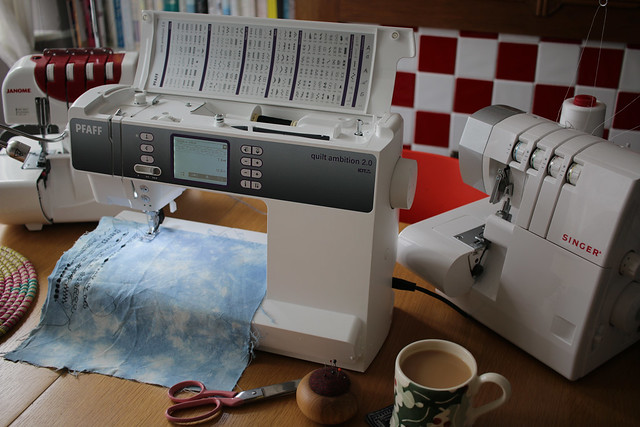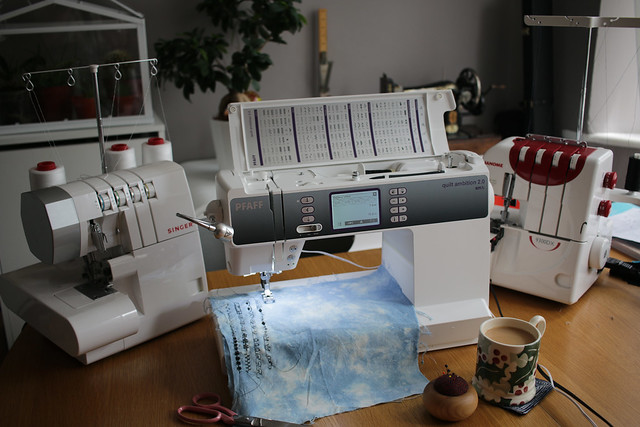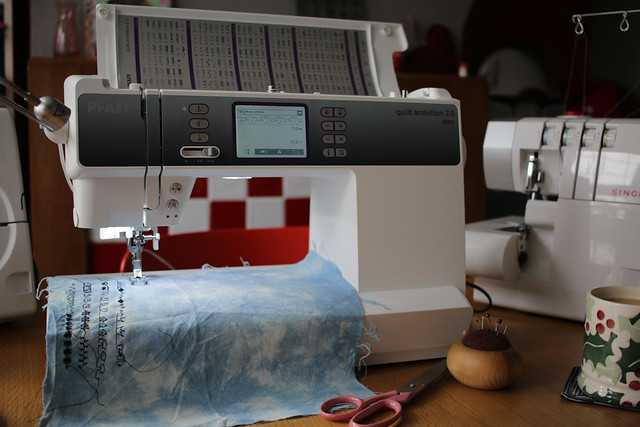Having blogged a round-up of my sewing activity, I also wanted to write a little about my experience at work over the last year.
I wrote briefly before about being asked to ‘act up’ to a more senior role at work during 2017. During that time, my workload was obscene, and I was expected to make decisions on the direction of my team within the context of the whole organisation, whilst being wholly excluded from my department’s management team and their plans, and with no support (and a lot of hindrance) from the same management team to implement improvements or reduce my workload. The final straw for me was receiving an email from an external consultant who had been employed without my knowledge to ‘mentor’ me in the role, and had started in post while I was on a training course. This person had been given authority for all decisions on the direction of my team which had previously sat with me, and in my first meeting with them I was assigned a long list of menial tasks. This was when I decided to stop ‘acting up’. This person was a man, and he was included in the department’s management team and decision making process from the start.
I wasn’t yet ready to leave the organisation; I loved my colleagues, and I thought that if I went back to my old job I would be happy working there. A couple of months later my department made a job offer for the same role as mine at a significantly higher salary (approximately 20% difference). It was then I realised that, despite being the longest serving member of the team, taking on some of the most difficult work, and having recently been personally asked to ‘act up’ and manage my peers, I was actually one of the lowest paid staff in my peer group (the vast majority of whom were men). The salary different was significant, and it was highly unlikely (based on the internal scheme for pay increase) that I would ever be able to achieve a comparable salary. The issue was exacerbated by the fact that my department was in the throes of an obsession with external consultants, all male, who were paid almost double my salary for the same work.
Obviously, I challenged this. Initially internally within the department, and then via the formal organisational route. Unfortunately my grievance didn’t have a hope. I was assigned a Chair to review my case whose impartiality I highly doubted and challenged in advance of my hearing, requesting an alternative. I was informed that an alternative wasn’t possible, and told that my fears were unfounded. I walked into a hearing (accompanied by a good friend) intending to highlight an issue of fairness, and was made to feel like I was on trial.
My action of raising the grievance was described to me as being ‘unethical’, and the focus was never on fair pay, but on discrediting me and distributing blame. It was a very sad and demotivating experience. There was one small positive to come out of the meeting, which was that I was granted three years of back pay, but on a technicality as opposed to being associated with an admission of unfairness. I bought myself a new sewing machine (a Pfaff Quilt Ambition 2.0) with some of the money, as a way of creating a positive out of something negative, and to celebrate my willingness to challenge, however unsuccessfully.
I retreated a bit further from the management team, and projects which would require working closely with them, after the grievance, but it was seeing friends treated equally unfairly during a restructure over the summer which confirmed to me that I needed to leave. On the day that the restructure was announced I stated my intention to leave, and three months later I handed my notice in to join a new employer.
Now that I have some distance from my previous employer I wanted to write about my experience, since when I briefly mentioned it on Instagram I had many people tell me they have been through, or are currently going through, similar experiences. I know not everyone is in a position where they feel they are able to challenge unfairness. Gender pay gaps (and other issues of unfairness) persist because of organisations which belittle and vilify anyone who challenges the status quo, and people will put up with an awful lot to continue working alongside people they care about (I did, for a long time). I hope you live and work in environments where you feel safe enough and respected enough to challenge, and if not, I hope you are able to move on in the new year, to somewhere where you can be respected for being yourself.



